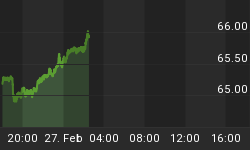Former SEC Chairman Arthur Levitt, who serves as a senior policy advisor for Goldman Sachs, spoke to Bloomberg TV's Erik Schatzker this morning on "Inside Track." Levitt said that Goldman should "stop saying" the firm puts customers first and that Lloyd Blankfein's "future is determined really by what the business is over the course of coming months."
On whether Greg Smith's Op-Ed had any impact on recent changes at Goldman:
"You know enough about the media to know that when a story like this percolates and a Greg Smith comes up -- and he comes up not just here but in Credit Suisse and Morgan Stanley -- it raises to a level that's beyond its merits. Greg Smith was there for a number of years - why did he surface just recently? I don't think that determines the fate of the company. I personally believe that something that's awfully important -- we talk about putting customers first -- I think we probably ought to stop saying that. Nobody really puts customers first. Business is a tension between sellers and buyers. That tension always exists."
On why Goldman Sachs should stop saying the firm puts customers first:
"I would not emphasize that beyond its merits and I would always point out that there is a logical, reasonable, fair, understandable tension between a seller of a product and a buyer of a product. It's not to say that buyers should beware. It's to say there should be transparency but on the other hand, let's not create a fellowship of buyers and sellers which will march into the sunset."
On whether Goldman would be tarnished if they said they don't put customers first:
"Goldman Sachs is distinguished because they do it better than everybody else, not because of any tagline. This is an advertising issue. It's become a PR issue because the media has made it such. I am saying that Goldman shouldn't play to that. They should play to their competence which is considerable. Lloyd's coming or going is no different than the comings or goings of any other great corporate executive. His time will come, undoubtedly. Each episode doesn't lead one step further to that event. I think we emphasize each episode much too much."
On why Goldman created the "lead director" position:
"Not everybody agrees that splitting the roles is a good thing. I was part of a panel that was created by the Business Council several years ago on this issue and we decided that for some companies, a split role doesn't make sense. For others, it makes a lot of sense. I think the Goldman's board felt that because of Lloyd's talent, and because of their own situation for the time being, they didn't want to split the roles. This union which is the municipal workers' union here in New York feels very compellingly that the roles should be split but also that there should be a lead director. I think the board and management at Goldman Sachs conceded that point."
On whether the lead director position for John Bryan is any change at all:
"I think there's clearly a change because we have to take this in the context of everything else that has gone on around Goldman Sachs - the business standards group, the pressure that's been put on them by the media. Creating a lead director and whomever that will be, will be a very powerful guy is a concession to a member of the board will have more power. I think there will also undoubtedly have their independent members meet and I think that alone will be a new standard."
On how these changes impact Lloyd Blankfein and Gary Cohn's roles:
"I don't know why people focus on the part of it. I don't think Gary Cohn enters into the equation. He's a very senior guy at the company and he helped formulate this decision but this has nothing to do with his strength in the corporate galaxy. As for Lloyd, I think his future is determined really by what the business is over the course of coming months."















